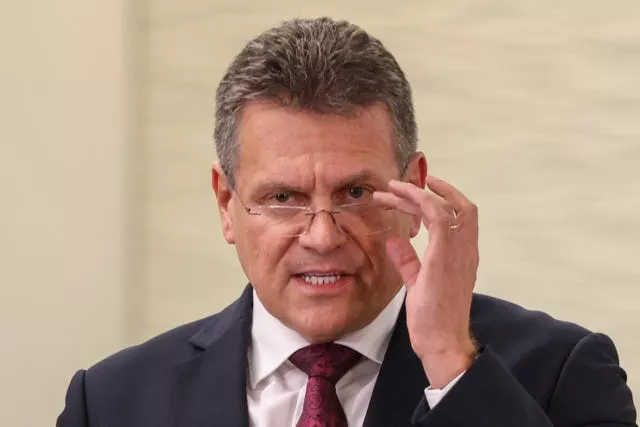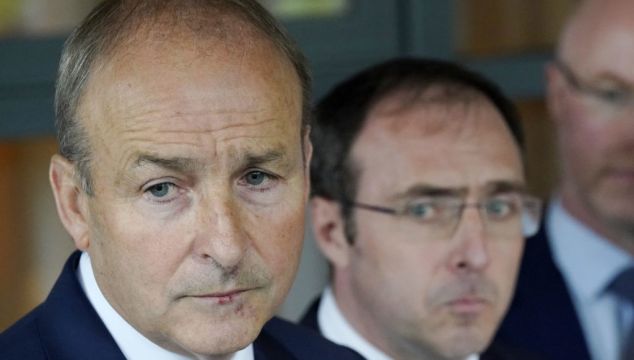Taoiseach Micheál Martin has said the EU’s chief Brexit negotiator has demonstrated his “desire to be solution-driven” when it comes to the Northern Ireland Protocol.
Mr Martin made his remarks on Monday in response to Maros Sefcovic’s suggestion that physical checks on goods travelling Britain to Northern Ireland could be cut to a “couple of lorries a day”.

Mr Sefcovic told the Financial Times that Brussels stands ready to work in an “open and constructive” way with the UK following a statement from new British prime minister Liz Truss on the prospect of a negotiated settlement on the protocol.
He argued that the trade border would be “invisible” under the EU’s plans, with goods processed “remotely” while making their way to Northern Ireland, as long as the UK provides real-time data on their movements.
It comes as the UK and EU have been embroiled in a row over the UK's proposals to override parts of the controversial post-Brexit treaty, as it seeks to reduce trade barriers with the North.

Speaking at Fianna Fáil’s parliamentary think-in in Mullingar, Co Westmeath, Mr Martin said: “What Maros Sefcovic is demonstrating is his flexibility, his desire to be solution-driven, and what you’re witnessing this morning is further solutions, proposed ideas around resolving the protocol issue.
“I spoke with the British PM late last week. It was a preliminary discussion. We will meet again on these issues.
“I do believe genuinely there’s a view … that we should do everything we can to resolve this issue.”
He added that the “European Union and the UK really should sort this out so that we can focus on the bigger issues geopolitically that are facing the European Union and UK, who are good partners on these more fundamental issues.”

On Wednesday, Ms Truss said her preference is for a negotiated solution to the dispute.
However, she said such a resolution would have to deliver “all of the things we set out” in the Northern Ireland Protocol Bill, which is currently making its way through the British parliament.
The legislation would allow British ministers to unilaterally scrap the arrangements the UK signed up to as part of the Brexit Withdrawal Agreement.







